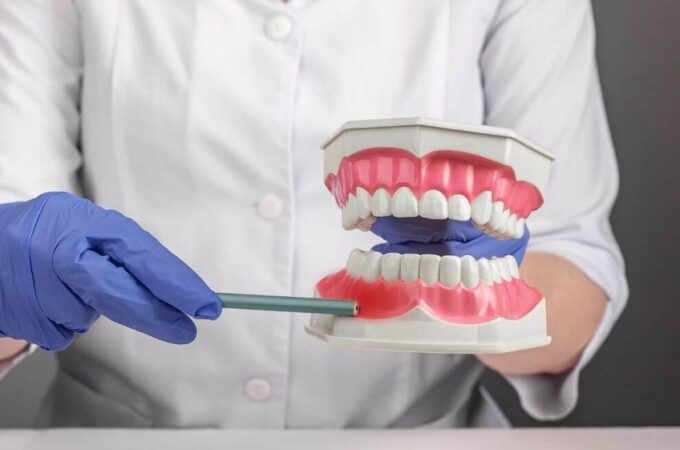
Overcoming Dental Trauma: How Implants Provide Long-Term Recovery
Dental trauma can be a life-altering event, impacting not only the function of your teeth but also your confidence and overall well-being. Whether caused by accidents, sports injuries, or unexpected falls, dental trauma often results in damaged or lost teeth, leading to a need for effective and long-lasting solutions. One of the most reliable and advanced options available today is dental implants, particularly those made from titanium. These implants offer a long-term recovery solution that can restore both the function and aesthetics of your smile.
Understanding Dental Trauma
Dental trauma encompasses a wide range of injuries that can affect the teeth, gums, and surrounding bone structure. It can range from minor chips and cracks to severe fractures, dislodgement, or even complete loss of teeth. Such injuries not only cause immediate pain and discomfort but can also lead to long-term complications if not properly addressed. When a tooth is lost or severely damaged, the surrounding bone may begin to deteriorate, leading to further dental issues over time.
Traditional treatments for dental trauma, such as bridges or dentures, have been effective to some extent. However, they often come with limitations, such as discomfort, the need for frequent adjustments, and the inability to fully restore the natural function of teeth. This is where dental implants, particularly titanium implants, come into play as a superior alternative.
What Are Dental Implants?
Dental implants are artificial tooth roots that are surgically placed into the jawbone to support a replacement tooth or bridge. They are designed to fuse with the bone over time, creating a stable foundation for one or more artificial teeth. The process of integrating the implant with the bone is known as osseointegration, and it is this process that sets dental implants apart from other tooth replacement options.
There are different materials used for dental implants, but titanium implants are by far the most popular and widely used. Titanium is a biocompatible metal, meaning it is not rejected by the body and can integrate seamlessly with the jawbone. This strong connection between the implant and the bone provides stability and durability that other solutions, like dentures, simply cannot match.
How Dental Implants Aid in Long-Term Recovery
The primary advantage of dental implants in the context of dental trauma is their ability to provide a permanent solution. Here’s how they contribute to long-term recovery:
1. Preservation of Jawbone Health
One of the most significant concerns following the loss of a tooth due to trauma is the potential for bone loss in the jaw. When a tooth is lost, the bone that once supported it can begin to resorb, or shrink, due to lack of stimulation. This can lead to a sunken appearance in the face and further dental issues.
Titanium implants play a crucial role in preventing this bone loss. Because they are anchored directly into the jawbone, they provide the necessary stimulation to the bone, much like a natural tooth root would. This stimulation encourages the bone to maintain its density and volume, thereby preserving the overall structure of the jaw.
2. Restoration of Functionality
Beyond aesthetics, the primary function of teeth is to assist in chewing and speaking. Dental trauma can severely impact these functions, leading to difficulties in eating certain foods and even in speaking clearly. Traditional dentures may restore some functionality, but they can shift and move, leading to discomfort and embarrassment.
Dental implants, however, are stable and secure. Once osseointegration is complete, the implant acts as a natural tooth root, providing the strength and stability needed for chewing and speaking with confidence. Titanium implants, in particular, are known for their strength and durability, making them an ideal choice for long-term recovery.
3. Aesthetic Restoration
The psychological impact of dental trauma can be profound. The loss of one or more teeth can lead to self-consciousness and a decrease in self-esteem. While dentures and bridges can restore the appearance of a smile to some extent, they often do not look or feel as natural as dental implants.
Titanium implants support crowns that are custom-made to match the color, shape, and size of your natural teeth. This ensures a seamless blend with your existing teeth, providing a natural-looking and aesthetically pleasing result. For individuals who have experienced dental trauma, this can significantly boost confidence and improve quality of life.
4. Long-Term Durability
One of the key benefits of titanium implants is their longevity. Unlike other tooth replacement options that may need to be replaced or adjusted over time, titanium implants are designed to last a lifetime with proper care. This makes them a cost-effective solution in the long run, as they do not require the same level of maintenance or replacement as dentures or bridges.
5. Improved Oral Health
Dental implants also contribute to overall oral health. Because they do not rely on adjacent teeth for support, as bridges do, there is no need to alter or compromise the health of neighboring teeth. Additionally, implants make it easier to maintain good oral hygiene, as they can be brushed and flossed just like natural teeth.
Overcoming dental trauma is a journey that involves not just physical recovery, but also emotional and psychological healing. Dental implants, especially titanium implants, offer a comprehensive solution that addresses all aspects of recovery. From preserving jawbone health and restoring functionality to providing a natural-looking smile and long-term durability, dental implants stand out as the optimal choice for individuals looking to overcome the challenges of dental trauma.
For those who have experienced the impact of dental trauma, exploring the option of dental implants with a qualified dental professional is a crucial step toward regaining both the function and appearance of their smile. With their ability to provide long-term recovery, dental implants are not just a treatment—they are a life-changing solution.





